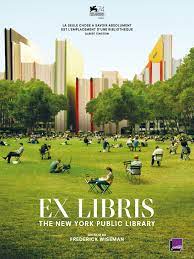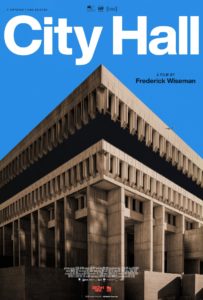Legendary documentarian Frederick Wiseman has done it again with his latest film, City Hall. Shot in 2018 and 2019 in Boston, MA, the film is an entirely engaging account of the details of local government life in Boston’s City Hall. Directed and edited by Wiseman, City Hall manages to make the daily, bureautic work of municipal government captivating by showcasing the real stars of any metropolis, its citizens – young and old; black, brown and white; rich and poor.
As has become his trademark, in City Hall Wiseman continues to singularly capture the nuance and energy of America’s social and cultural institutions like no other living filmmaker. At 90 years of age, with 45 film credits to his name, Wiseman is the consummate storyteller with a gift of making the seemingly mundane feel alive and electric, like the living vibrant organism that it is.
I first encountered Wiseman in 2015 when I attended a screening of his film, In Jackson Heights, at the Toronto International Film Festival. In Jackson Heights is a masterful story about the communities of Jackson Heights, Queens, NY – one of the world’s most diverse neighborhoods where over 167 languages are spoken. With a run time of 3 hours 10 minutes, the film is a commitment. But like with all of Wiseman’s films, many of which run over three hours including City Hall, the time flies. With the viewer laughing, crying, celebrating and reflecting – all simultaneously – the whole way through.
 The same can be said of Wiseman’s 2017 documentary, Ex Libris: The New York Public Library, maybe my favorite Wiseman film. In it, he goes behind the scenes of one of the most storied learning institutions in the world and, in the process of highlighting the breadth and scope of the work of the library’s 92 branches, manages to celebrate the glorious humanity in us all.
The same can be said of Wiseman’s 2017 documentary, Ex Libris: The New York Public Library, maybe my favorite Wiseman film. In it, he goes behind the scenes of one of the most storied learning institutions in the world and, in the process of highlighting the breadth and scope of the work of the library’s 92 branches, manages to celebrate the glorious humanity in us all.
Historically in Wiseman’s films, the institution itself is often the protagonist. But in City Hall the filmmaker focuses much of his attention on Boston’s (then) Mayor, Marty Walsh (Walsh has since joined the Biden/Harris Administration as the U.S. Secretary of Labor). The consummate “every man,” Walsh is instantly likeable. But the film’s not just about Mayor Walsh; it’s about all the ways local government offices and officials work to serve the residents of a city, or not, depending on the circumstances. It’s filled with the push and pull of many competing interests – public and private, communal and individual. The film doesn’t shy away from tackling some of community’s greatest challenges – homelessness, racism, substance use, food insecurity – but it doesn’t attempt to solve all these problems either. Or suggest that a charismatic leader like Marty Walsh has all the answers. Instead, you feel the aspirational nature of municipal service when it’s operating at full throttle.
Truth be told, some of my favorite scenes in the film are of Boston City Hall itself – a fortress of a building – and of the adjacent Faneuil Hall, where I spent much time during university. Not only do these scenes fondly remind me of days gone by, they also provide a still punctuation throughout the film that allows the viewer to take a breath and reflect on the nuance of what they’re bearing witness to.
I can’t say enough good things about City Hall. Here’s hoping you’re able to carve out some time to savor this delightful film.
